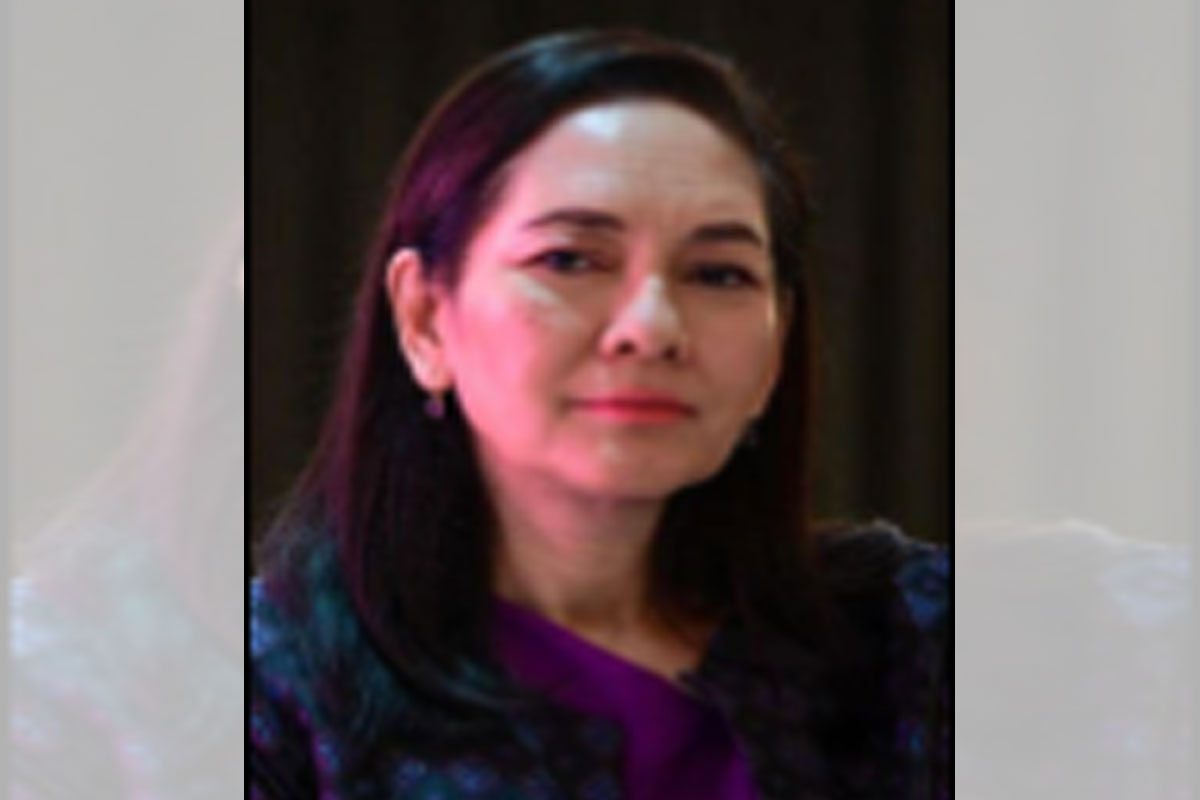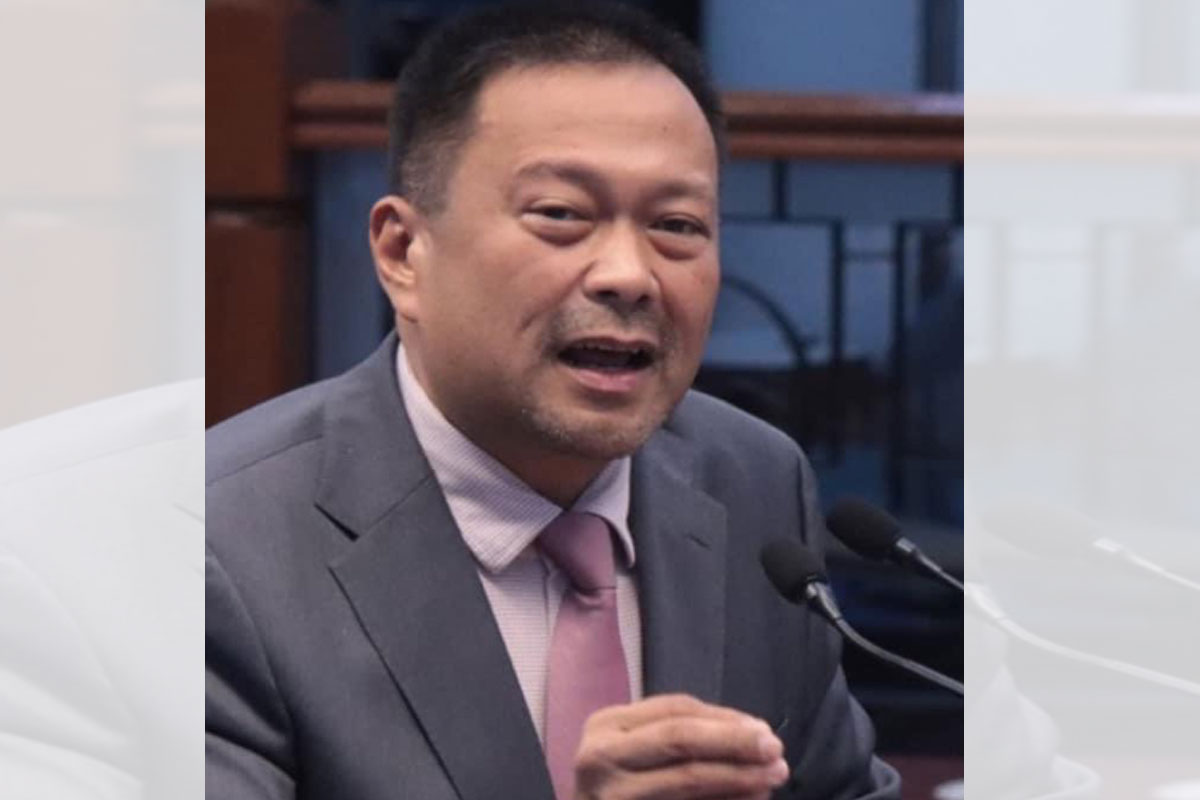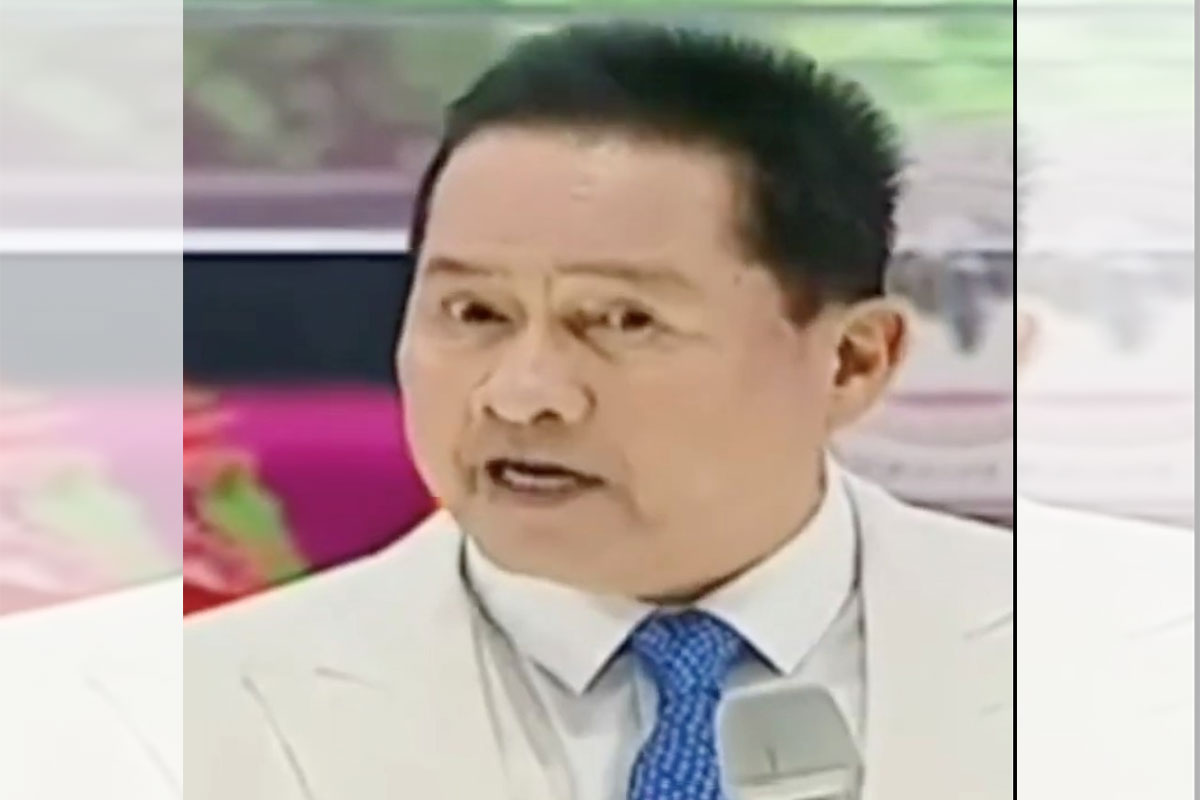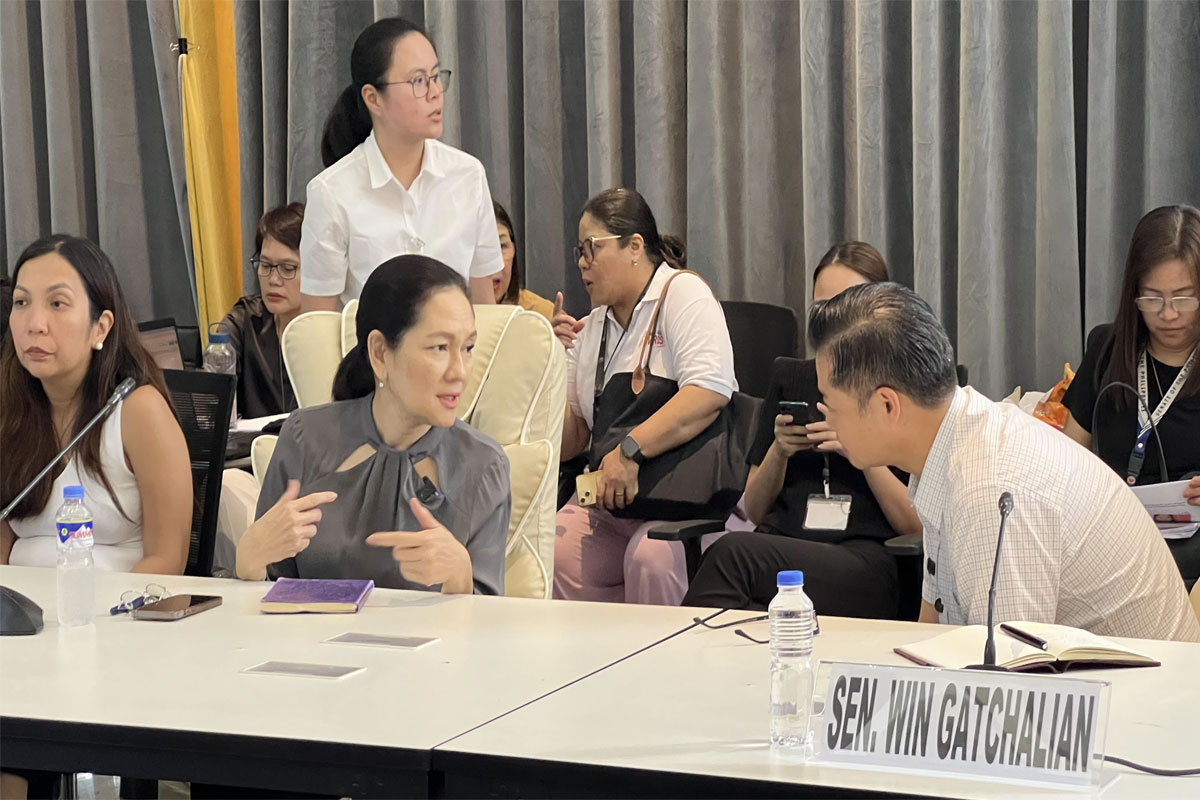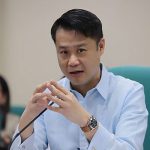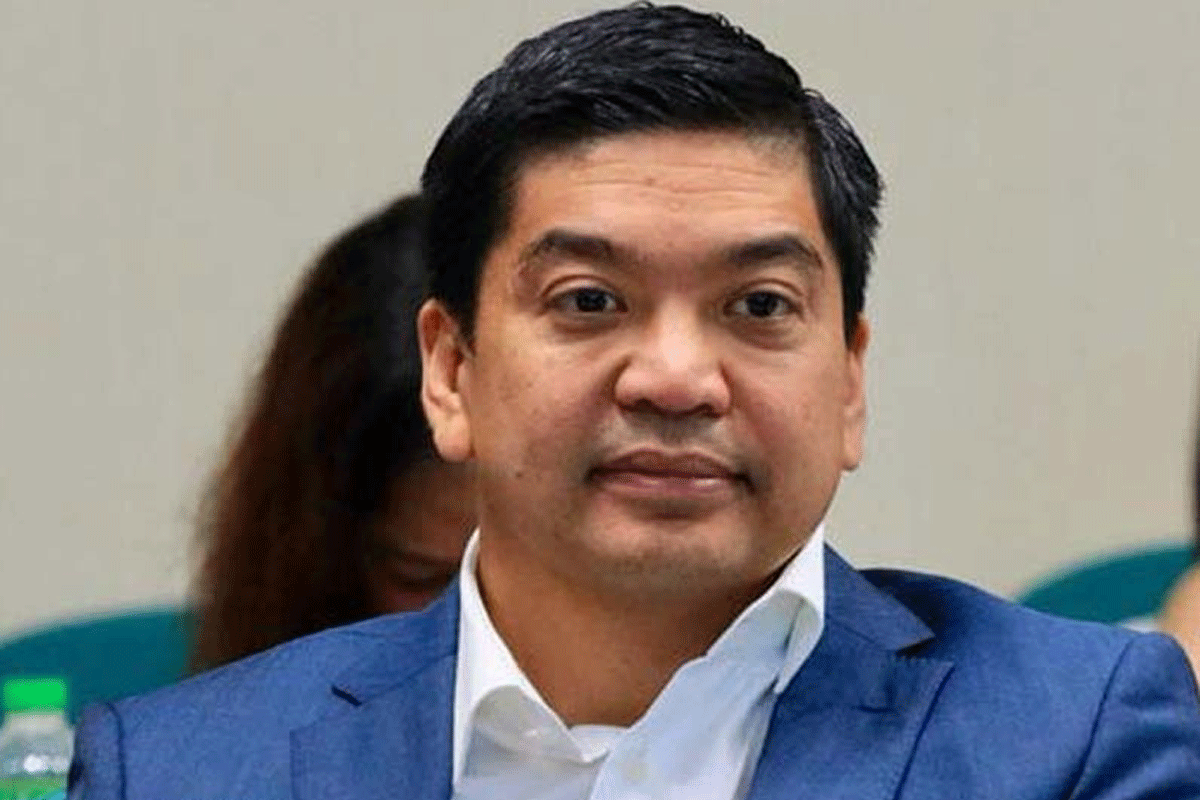
Solon welcomes move to hasten Cha-cha bills hearings
A VETERAN lawmaker has welcomed the recent move of the House committee on constitutional amendments to fast-track this 2023 the congressional deliberations on pending proposals to amend the Constitution for the first time since it was ratified in February 1987.
“We welcome the decision to put on the fast lane, along with the remaining priority bills drawn up by the Congress and President Marcos last October, separate proposals to at last reform the 1987 Constitution,” said Camarines Sur Rep. LRay Villafuerte, who last year filed House Bill (HB) No. 4926 tasking a duly-elected Constitutional Convention (Con-Con) to study in a year’s time possible constitutional amendments and revisions.
On the eve of the December 17 to January 22 congressional break, the House committee on constitutional amendments chaired by Cagayan de Oro Rep. Rufus Rodriguez held a preliminary meeting, in which the panel chairman bared plans to start marathon hearings on January 26, on several pending bills on Charter-Change (Cha-cha) proposals.
After Villafuerte filed HB 4926, Rodriguez filed House Joint Resolution (HJR) No. 12 establishing a Con-Con to specifically review and amend the economic provisions of our Constitution.
“It’s about time to introduce changes to the antiquated and inapt provisions of our 1987 Charter, which has long been crying for reforms,” added Villafuerte, who is president of the National Unity Party (NUP).
Villafuerte’s HB 4926 calls for the election of Con-Con delegates—at one representative per legislative district in a balloting to be held simultaneously with the next nationwide polls, which, in this case, is the postponed barangay and Sangguniang Kabataan elections (BSKE) reset on October 30, 2023.
The BSKE was originally scheduled last Dec. 5, 2022, but it was moved back to this year, based on the poll postponement law—Republic Act (RA) 11935—signed by President Marcos last October.
The next electoral exercise after the BSKE is the midterm elections for congressional and local officials on May 12, 2025.
Villafuerte agreed with Rodriguez that the economic provisions of the Constitution need amending as soon as possible.
But Villafuerte is open, too, to a review of, and possible changes to, the political and other major provisions of the Constitution, in the event that the would-be Con-Con delegates do consider such amendments and/or revisions.
“The clamor for Charter Change has always been relevant,” said Villafuerte in the bill. “However, calls for genuine constitutional reforms have taken a backseat because of perceived controversies and allegations of corruption in previous administrations.”
“Filipinos, meanwhile, take severe punishment from corruption, high prices, inequitable distribution of income, and a lopsided playing field when it comes to foreign investments,” he said. “Thus, while it is a given that the present Charter needs to go through the process of amendment and/or revision, this should be done with much deliberation and in a transparent and trustworthy atmosphere.”
For Villafuerte, the Constitution’s “inward-looking, overly protective” provisions on the economy are “believed responsible for handcuffing the Philippines from becoming an investment haven despite its pre-pandemic rise as one of Asia’s economic star.”
He said that in the realm of economic reforms, “the Philippines has won international investment-grade ratings and acclaimed as a rising economic star in recent years, but such accolades have not attracted the impressive level of foreign direct investments (FDIs) going to, say, Vietnam or Thailand, because of our restrictive constitutional provisions that limit foreigners to a maximum 40%-participation in certain local businesses that are attractive to foreign investors.”
“Solid proof that the 40% cap on foreign ownership has been the perennial deal-breaker for prospective overseas investors are the latest official investment data pointing to declining FDIs (foreign direct investments) and investment pledges,” Villafuerte said.
According to the Bangko Sentral ng Pilipinas (BSP), FDI net inflows fell to $$6.7 billion in the first nine months of 2022, or about a tenth lower than the $7.5 billion booked in the same January-September period in 2021.
Last September, FDI net inflows posted a 7.9% drop to $626 million from the year-ago’s $626 million.
As for approved investment pledges registered with investment promotion agencies (IPAs), the Philippine Statistics Authority (PSA) reported that the total for 2022’s third quarter slipped 22% to P13.05 billion from P16.82 billion over the July-September 2021 period.
These were the investment pledges with the Board of Investments (BOI), Clark Development Corp. (CDC), Subic Bay Metropolitan Authority (SBMA) and the Philippine Economic Zone Authority (PEZA).
According to the PSA, no investment approvals were reported by the IPAs Tourism Infrastructure Economic Zone Authority (TIEZA), The Authority of the Freeport Area of Bataan (AFAB), Cagayan Economic Zone Authority (CEZA), Poro Point Management Corp. (PPMC) and the Bangsamoro Autonomous Region in Muslim Mindanao (BARMM).
Before the Rodriguez-chaired House committee moved last month to speed up its deliberations on pending Charter-Change bills, Villafuerte said in a November statement that: “With constitutional reforms seemingly gaining traction in the House of Representatives, we are appealing to the chamber’s leadership to add to the list of priority bills identified by the President with Speaker Martin (Romualdez) and Senate President Migz (Juan Miguel Zubiri) for priority action the proposals for Con-Con delegates, to be elected in the next nationwide balloting, to write proposed changes to the 1987 Charter.”
During the October 10 meeting of the Legislative-Executive Development Advisory Council (LEDAC) convened by President Marcos, Senate and House leaders identified with Malacañan Palace 30 bills on the Common Legislative Agenda (CLA) list for priority action by the 19th Congress.
“I believe legislators who similarly back constitutional reforms will agree with me that the chamber has room for several other priority bills, including the election in the next national polls of delegates to a Con-Con to amend our Constitution,” Villafuerte said.
Villafuerte explained that among the three options allowed for Charter Change under the 1987 Constitution, the “most transparent and trustworthy” manner of introducing needed constitutional reforms is through a Con-Con, in lieu of either of the options for the Congress to convene itself into a Constituent Assembly (Con-Ass) or for the people themselves to take direct action through the “People’s Initiative” route.
“I don’t see the Con-Ass route going anywhere, given that this constitutional option for Charter Change is likely to be sidetracked by the expectedly protracted national debate on whether the 1987 Constitution actually requires senators and House members to vote separately or jointly on proposed constitutional amendments and/or revisions,” Villafuerte said.
“Moreover,” he said, “a Con-Ass will further polarize our people, in light of the legitimate concern that devoting part of our official time as legislators to the Con-Con would only distract us from, and let us devote less of our efforts and resources to, the task of law-making, which is what our voters had elected us in the first place to do in the House of Representatives and the Senate.”
As for the “People’s Initiative option,” he said, “this process, considering its nature and the way it is supposed to make changes and seek the people’s support and approval, is only ideal for introducing minor revisions to the Constitution, and not for major amendments or an overhaul that will possibly entail major changes in numerous constitutional provisions.”
Villafuerte said one minor revision in the Constitution, for example, may entail changes in various articles and sections in the entire Constitution, all of which will have to be presented to, and approved by, the electorate in a plebiscite.
“One knotty issue, for instance, that has led to controversies and seemingly endless debates in the past is on the needed action of the bicameral Congress on certain concerns, because the framers of the 1987 Constitution had failed to explicitly state in all of the Charter’s provisions concerning congressional approval on whether senators and House members need to vote separately or jointly in a Con-Ass,” he said.
“Proposals to introduce amendments via the Cons-Ass route failed to take off in the past, for example, because these reform proposals had sparked long-drawn-out debates on whether senators and House members need to vote separately or jointly on amendments or revisions,” he added.
As proposed in Villafuerte’s HB 4926, the Con-Con shall be composed of one (1) delegate from every legislative district nationwide.
At present, there are 243 congressional districts across the country.
The Commission on Elections (Comelec) is directed under HB 4926 to draw up the implementing rules and regulations (IRR) for the holding of the election for Con-Con delegates within 30 days from the effectivity of this Act.
Any person elected as a Con-Con delegate “shall not be eligible to run for any public office or position in the first national and first local elections to be held after the ratification of the new Constitution,” the bill states.
“Further, no elected delegate of the Con-Con shall be appointed to any public office or position while the Con-Con is in session and within a period of one (1) year after the plebiscite for the revised or amended Constitution,” it adds.
The would-be elected delegates are tasked under Villafuerte’s bill to study and draft the proposed amendments and/or revisions to the Constitution within two (2) years after the effectivity of its rules.
“No extension of the term of the Con-Con shall be allowed,” said Villafuerte in his bill. “The death or incapacity of an elected delegate shall not be a ground for the holding of a special election or for the delay of the proceedings of the Convention.”
The Con-Con is mandated under the bill to submit its recommended constitutional reforms following a process of public hearings and deliberations on whatever changes are to be agreed upon by the delegates— “for the people’s ratification in a plebiscite to be held not earlier than 60 days or later than 90 days after approval of the amendments and/or revisions, and the same shall be valid only when ratified by a majority of the votes cast,” Villafuerte said.
Villafuerte pointed out that Section 3, Article XVII of the 1987 Constitution provides for two alternative modes of calling for a Con-Con:
· Call for a Con-Con by the Congress upon a vote of two-thirds of all its Members; or
· Submit to the electorate the question of calling a Con-Con upon a majority vote of the members of Congress.
“It is herein proposed that the first option be adopted by Congress, i.e. call for a Con-Con by two-thirds (2/3) of the vote of all the members of Congress,” Villafuerte said in his bill.
“Calling for a Con-Con whose delegates shall be elected by the people simultaneously with the next BSKE is a measure that is intended to be more transparent and less conflict-ridden,” he added.
Prospective candidates to the Con-Con are required under the bill to be natural born citizens of the Philippines who are at least 25 years of age on the day of the election; are qualified voters; and of recognized probity, nationalism and patriotism.
Section 1, Article XVII of the Philippine Constitution provides that any amendment or revision to the Charter may be proposed by:
· The Congress, upon a vote of three-fourths of all its members, after convening itself as a Constituent Assembly;
· A Constitutional Convention; or
· Proposed directly by the people through their own initiative, upon a petition signed by at least 12% of the total number of registered voters, of which every legislative district must be represented by at least three (3)% of the registered voters therein.
No amendment under this section on People’s Initiative shall be authorized within five years following the ratification of this Constitution nor oftener than once every five (5) years thereafter.







